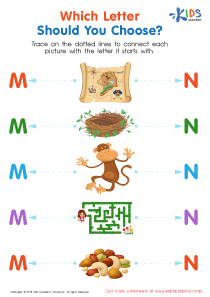Alphabet Recognition Normal Lowercase/Small Letters Worksheets for Ages 4-7
9 filtered results
-
From - To
Welcome to our Alphabet Recognition Lowercase Worksheets page, designed specifically for children ages 4-7. These engaging, printable worksheets help young learners identify and recognize lowercase letters, a vital step in their literacy journey. Each activity is carefully crafted to enhance alphabet knowledge through fun, interactive exercises that promote learning through play. Perfect for classroom settings or at-home practice, our worksheets encourage children to trace, match, and identify small letters, fostering confidence and skill development. Empower your child's reading and writing abilities with our diverse collection of lower-case alphabet worksheets—fun and educational resources that support essential early literacy skills!
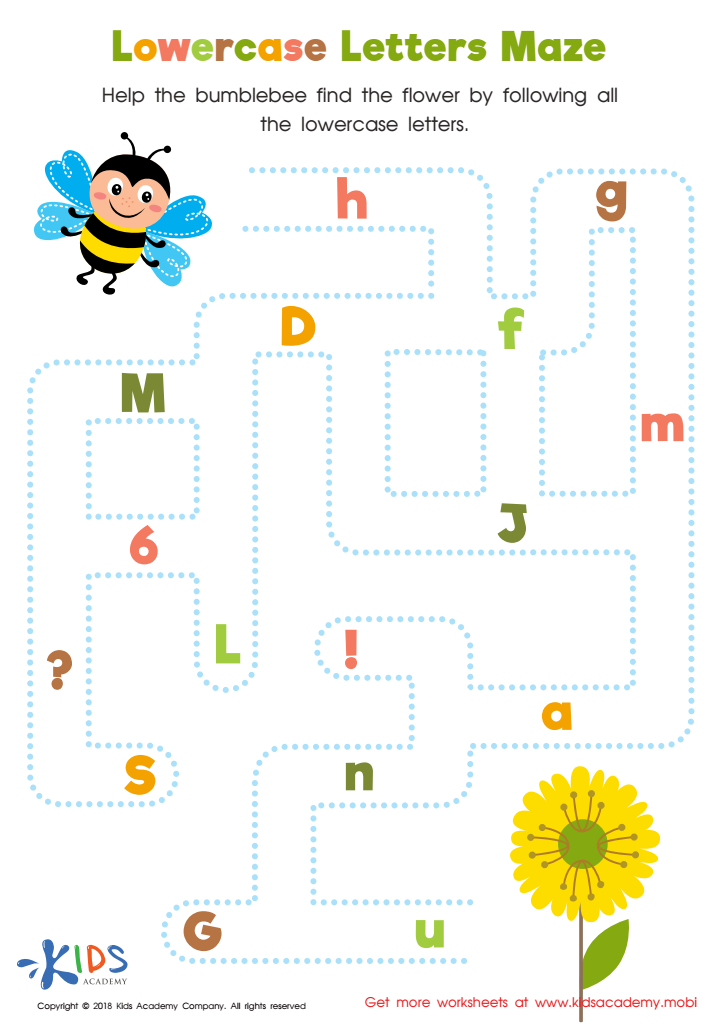

Lowercase Letters Maze Worksheet
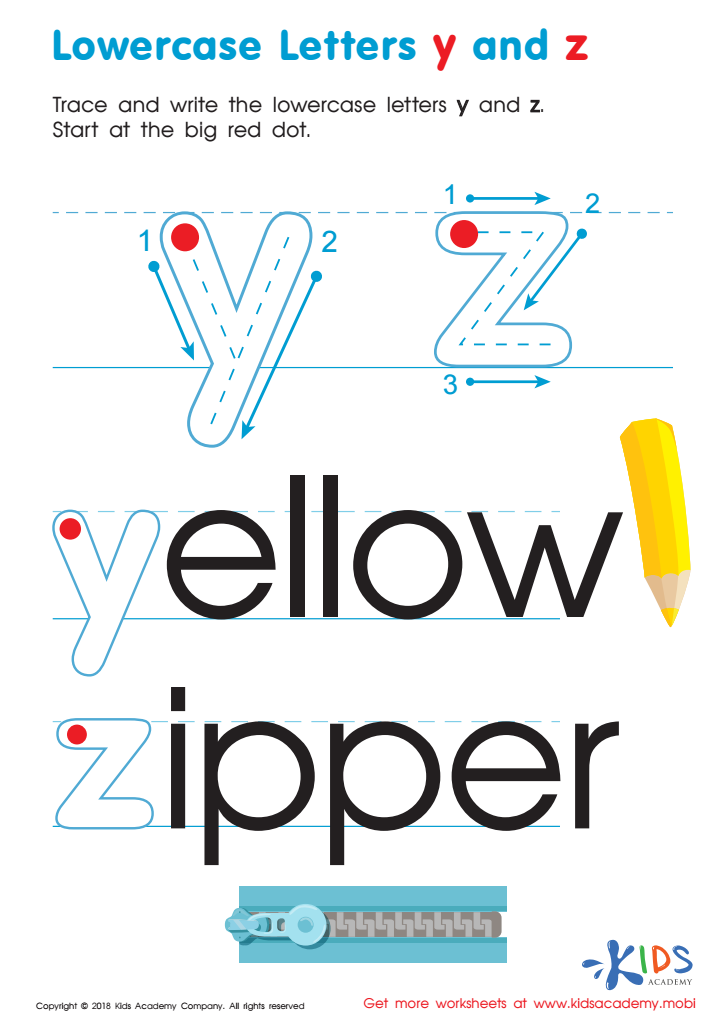

Lowercase Letters y z Worksheet
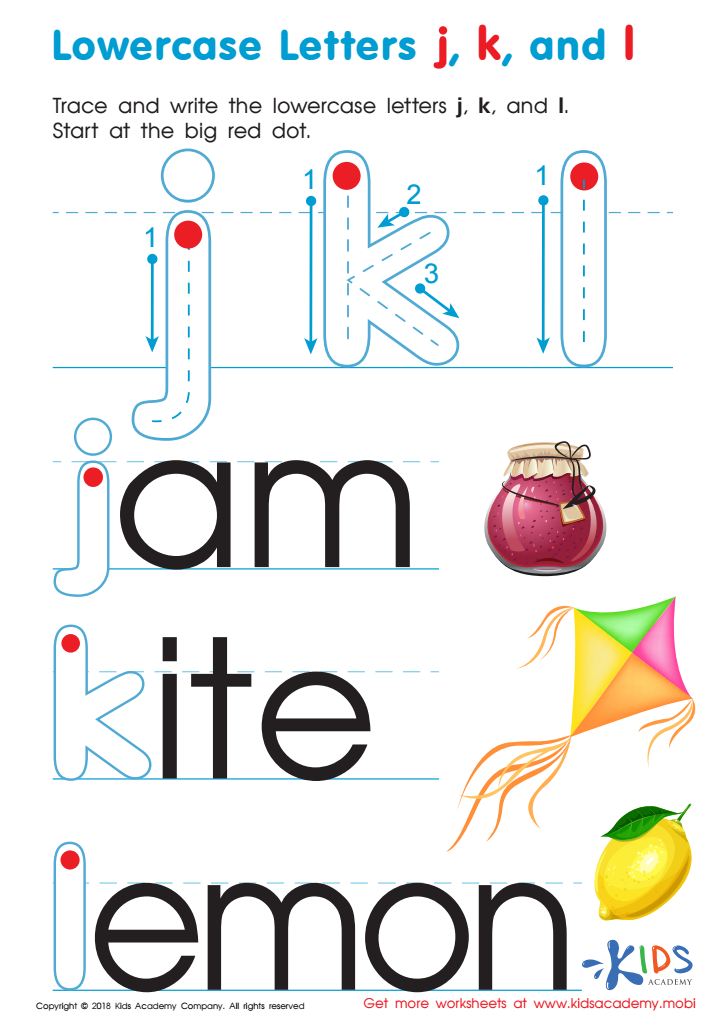

Lowercase Letters j k l Worksheet
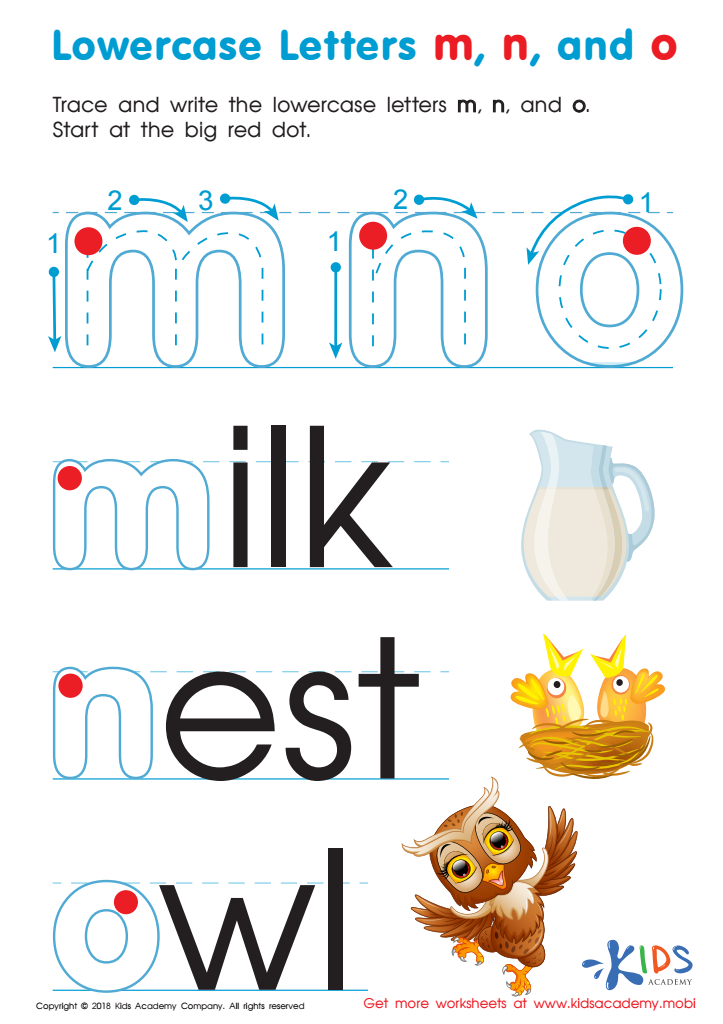

Lowercase Letters m n o Worksheet
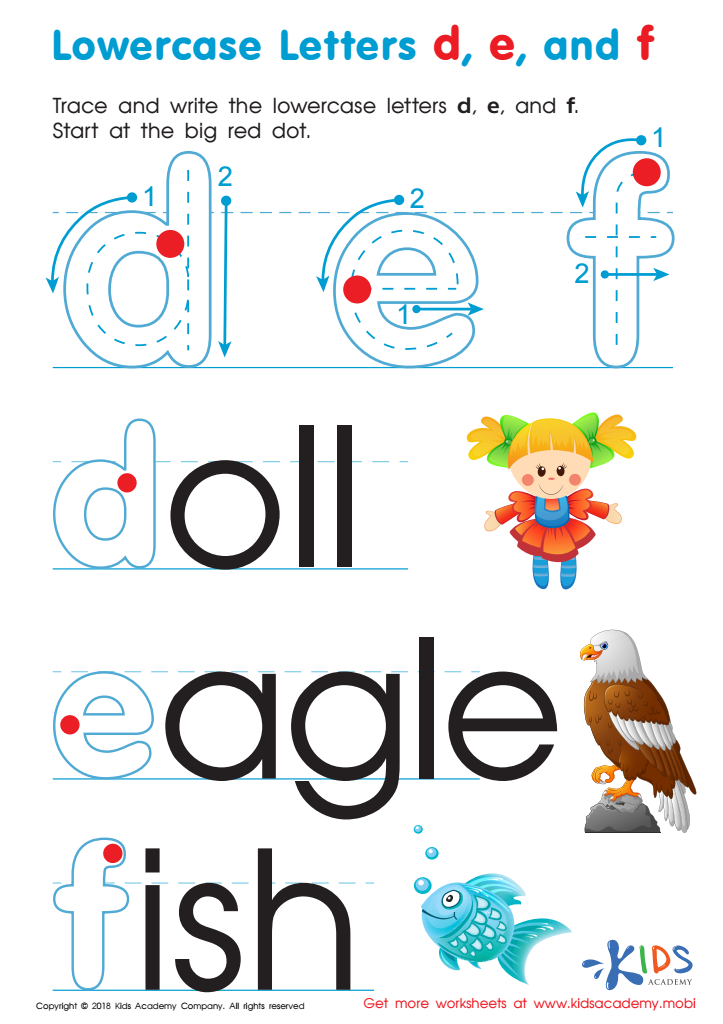

Lowercase Letters d e f Worksheet
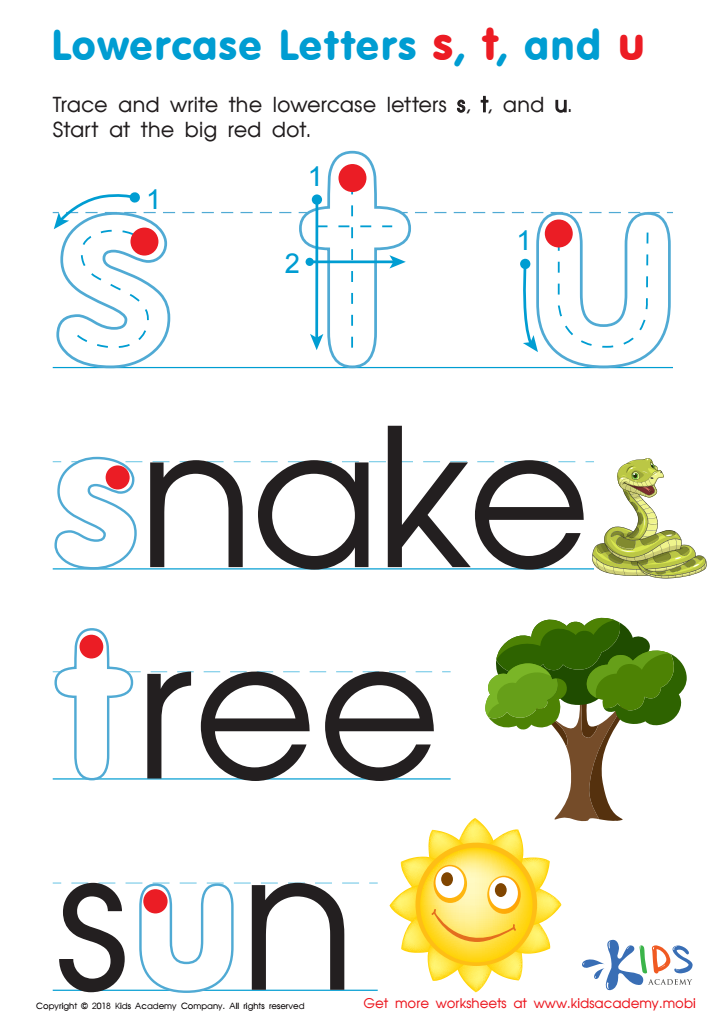

Lowercase Letters s t u Worksheet
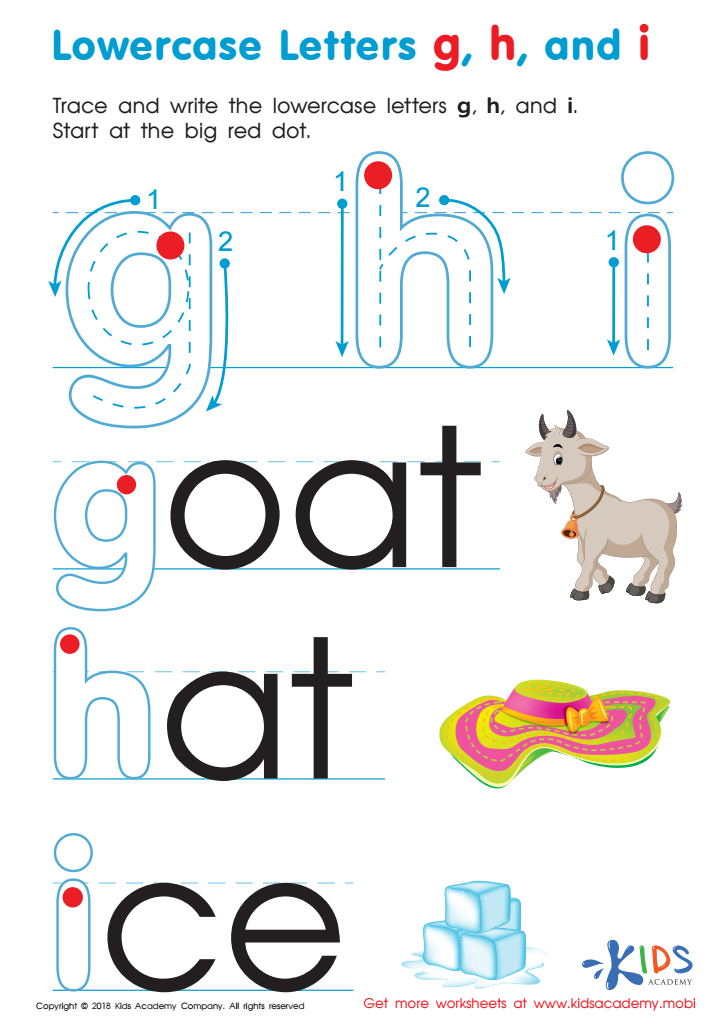

Lowercase Letters g h i Worksheet
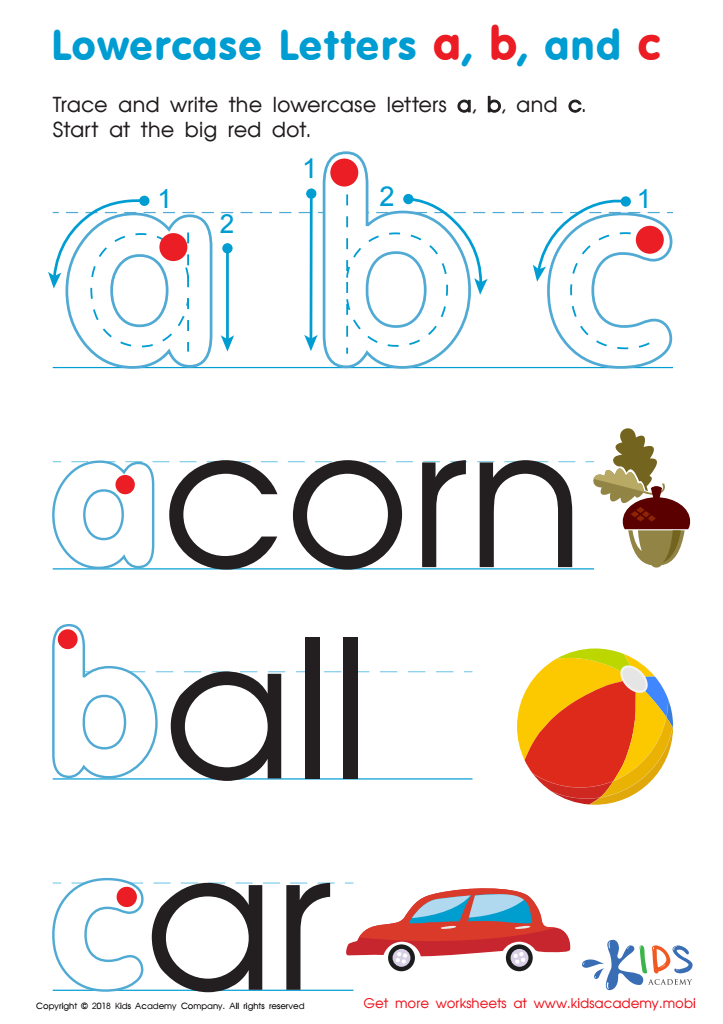

Lowercase Letters a b c Worksheet
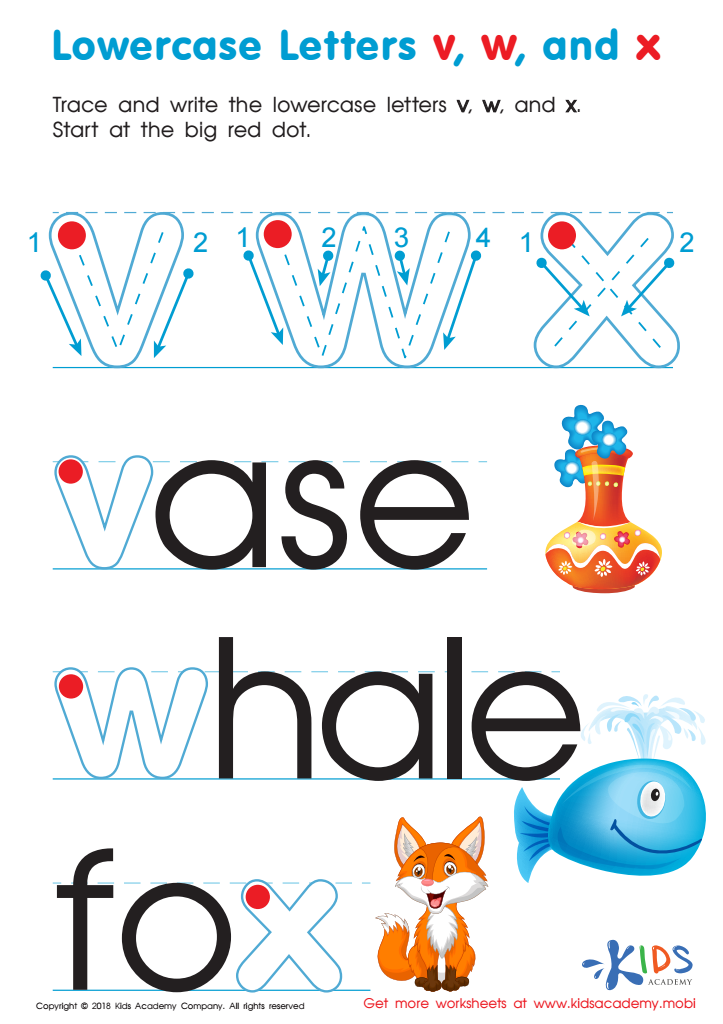

Lowercase Letters v w x Worksheet
Alphabet recognition, particularly of lowercase letters, is a fundamental skill for children aged 4-7 that lays the groundwork for their reading and writing abilities. Unlike uppercase letters, lowercase letters are more prevalent in daily text, making their recognition crucial for early literacy development. When children understand and recognize small letters, they can decode words more effectively, leading to improved reading fluency and comprehension.
For parents and teachers, fostering this skill early on can significantly impact a child's confidence and enjoyment in reading. Mastery of lowercase letters allows children to engage with books and written language more independently, enhancing their communication skills. Additionally, recognizing small letters helps children understand phonics, punctuation, and spelling, which are essential for writing proficiency.
Moreover, children often encounter lowercase letters first in their environment—on signs, labels, and storybooks. Recognizing these letters can foster curiosity and encourage a love for reading. By supporting alphabet recognition both at home and in the classroom, parents and teachers can create a rich foundation for lifelong literacy, ensuring that children are well-prepared for future academic challenges and able to fully participate in their educational journey.
 Assign to My Students
Assign to My Students




